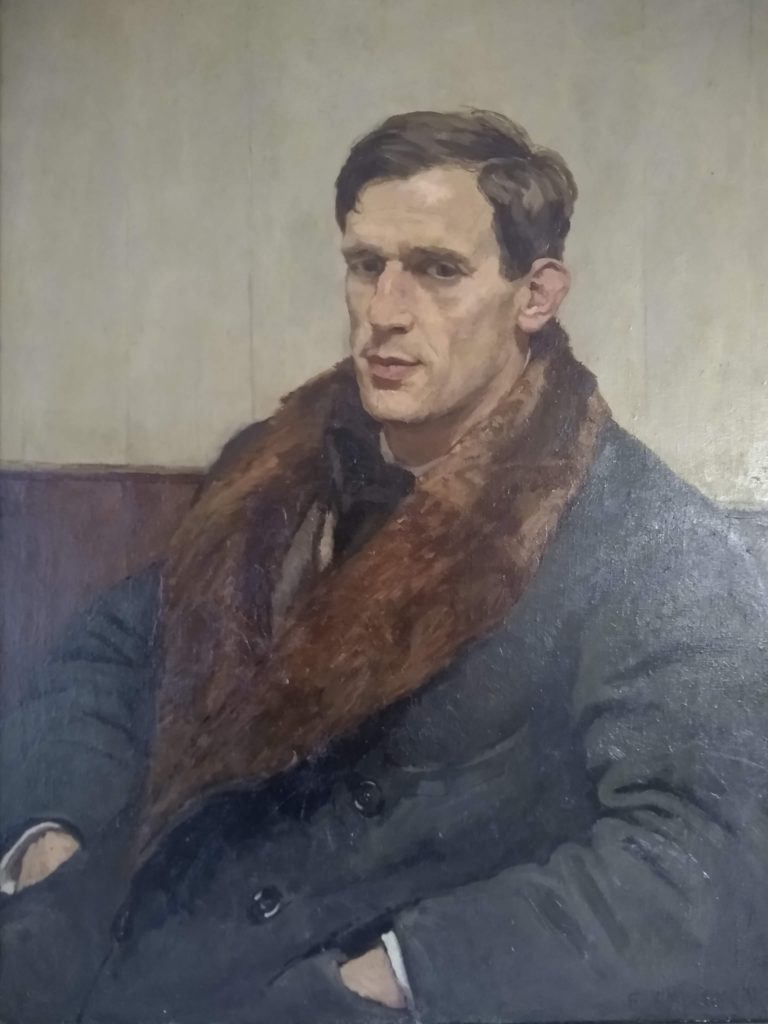Your Cart Is Empty
✖No products in the cart.
Bethel Solomons was born in Dublin in 1885, the third child of Maurice and Rosa Solomons. Among his achievements he was to become Master of the Rotunda Hospital and President of the Dublin Jewish Progressive Congregation. In addition, he was an international rugby player and acted at the Abbey Theatre. Bethel Solomons considered himself as much an Irishman as a Jew, and as much a Jew as an Irishman.

Following Bethel Solomons’ early education in Dublin, he enrolled in Trinity College to study medicine. Bethel Solomons was not entirely focused on the academic side of university, and enjoyed the social life, theatre and rugby. After graduation and his experience of working as an Extern Maternity Assistant at the Rotunda, which included attending home births in the surrounding slum areas, he became devoted to obstetrics and gynaecology and never lost the thrill of a new born baby.
In the years following university Bethel Solomons developed his medical knowledge and studied in clinics in Paris, Vienna, Berlin, Leipzig, Dresden and Munich. He also started to teach medical students, to publish his medical research and developed a lifelong interest in infertility. Another continuous thread was Bethel Solomons’ support of the suffrage movement, which started when he was a student, and his belief in women’s equality. He argued in favour of women having equal pay for equal work, and for women not to lose their job on marriage. He consistently acknowledged the key role of nurses, and lobbied for them to have state pensions. In 1913 the Jewish Medical Dispensary was opened in Stamer Street and run by Bethel Solomons and Ada Shillman, a midwife
who attended most of the Jewish women in the city.
In 1916 he met and married Gertrude Levy, a friend of his sister Sophie who had met Gertrude at the Royal Academy of Music in London where Sophie was training to be an opera singer, and Gertrude a pianist. Gertrude’s grandparents had emigrated from Prussia in the late 1840s to Manchester. At the time of Gertrude’s and her twin sister’s birth in 1888, her parents were temporarily living in Aliwal North in South Africa where they had a General Store. By 1901 the family had returned to England and lived in Hampstead. Gertrude was a member of the Liberal Synagogue in London, which is where they married with the ceremony performed by Claude Montefiore.
In 1926 Bethel Solomons became Master of the Rotunda Hospital until 1933. He inherited a hospital with considerable financial challenges which, unless resolved, would prevent his plans to modernise the facilities at the Rotunda which were necessary to maintain the hospital’s reputation as one of the world’s leading maternity hospitals. Following intense local fundraising, Bethel Solomons proposed using funding from the Hospital Sweepstakes, but there was considerable opposition from some of the Governors who were opposed to participating in lottery funding. However, approval was eventually received and improvements were made including a new nurses’ home, new out-patient department, new theatre block, new sick babies ward, the introduction of X-ray facilities,
baby incubators and a revival of the pathology laboratory. During his mastership, Bethel Solomons toured numerous clinics in America to keep current with the newly developing techniques in obstetrics and gynaecology. As a result of these and other developments, his mastership yielded the best maternal mortality rate recorded for the Rotunda at the time.

As the second world war approached, Bethel Solomons took an increased role in Jewish affairs. In 1937 he published a letter in the British Medical Journal warning against the recent decision for Berlin to be the site for an international medical academy of postgraduate work and research to ‘further international fellowship and friendship’. In 1939 he worked to raise funds for the Jewish Refugee Aid Committee of Eire, which was chaired by Leonard Abrahamson, and had amongst its vice-chairs, his brother Edwin who was President of the Dublin Hebrew Congregation. At the conclusion of the war, Bethel Solomons became chairman of the Jewish Children’s Refugee fund, with Dudley Newmark as Secretary, and Morris Ellis as Treasurer. The funds raised went to a number of organisations for children, and funding was retained in case children were brought either to Eire (to Clonyn Castle) or to Millisle Farm (in Northern Ireland).
In 1946, Rabbi Israel Mattuck from the Liberal Synagogue in London gave a talk at the Mansion House in Dublin which was chaired by Bethel Solomons. Following the meeting a council was established, chaired by Larry Elyan, which led to the development of the Dublin Jewish Progressive Congregation (DJPC), with Bethel Solomons as president from 1946 to 1965. The history of the development of the DJPC is documented in the 2006 edition of Menorah, the publication which celebrated the congregation’s 60th anniversary. The establishment of the new synagogue was not without its challenges as can be seen in Rabbi Herzog’s (then Chief Rabbi of the Holy Land) response to the new progressive synagogue as an ‘open, active, organised rebellion against the Torah’ which Bethel Solomons refuted in the Jewish Chronicle in 1946.
Throughout his life Bethel Solomons was awarded many honours which included the King Albert’s medal for service to Belgian Refugees (1920), membership of the Royal Irish Academy (1925), the Joseph Price Orator (America, 1932), President, Obstetrics and Gynaecology, British Medical Association (1933), Honorary Fellow, American College of Surgeons (1934), and President of the Royal College of Physicians of Ireland (1946).
In addition to these professional honours, Bethel Solomons also played rugby for Ireland 10 times from 1908 to 1910, and acted at the Abbey in 1913 in Strindberg’s There are Crimes and Crimes (under the stage name Thomas Thornhill). Together with his sister Estella Solomons, he was part of the literary/artistic circles of Dublin in the early 20th century, and became friends with many of the leading artists and writers, including James Stephens who dedicated The Charwoman’s Daughter to him.
Bethel and Gertrude Solomons had three children, Bethel, Michael and Margaret. The family lived in Fitzwilliam Square and the Rotunda (from 1926 to 1933).